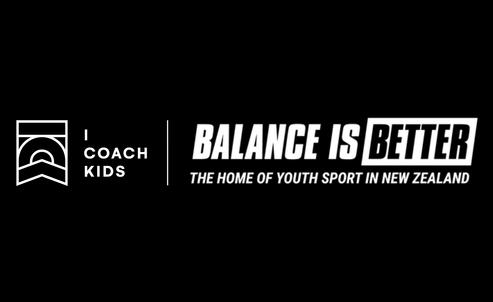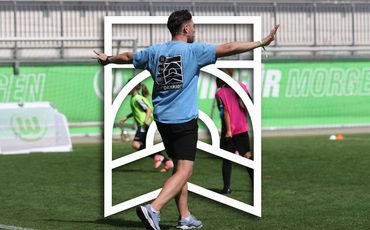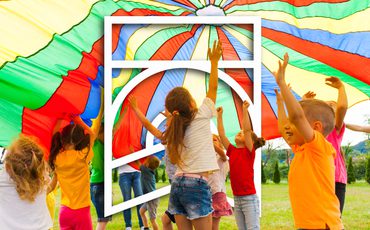
The L Word: Learning

Balance is Better
This article first appeared on Balance is Better, an evidence-based philosophy that underpins Sport New Zealand’s overall approach to youth sport. ICOACHKIDS are proud partners of Sport New Zealand since 2020.
By Nicole Youman
As an adult are you open to learning? Do you fear it or embrace it? Nicole Youman, Community Coaching Manager for Hockey NZ reflects on her own learning journey and provides great advice for up and coming coaches.
Learning is a word that we use a lot.
As a young person, you are immersed in structured learning environments through schools, apprenticeships, universities, and many other mechanisms.
Typically, as a young person you are given the time and space to explore, be creative, test and try, are not judged on failure and even encouraged to fail to enable learning. As an adult I felt the opportunity to learn changed.
This is what I have learnt from my personal experience so far in exploring the process of learning.
You are the leader of your learning
I remember receiving advice in the initial days of my first full-time role as a coach. My manager told me “Remember, you are now responsible for leading your own learning”. I smiled and did not think too much of it at the time.
Looking back now, I realise the importance and power of this advice. There were no longer teachers, lecturers or parents assisting me with my learning, I was now in the driver’s seat and given the freedom and responsibility to explore.
Coming from structured learning environments, it is easy to look at courses, accreditations, and rely on others to determine what you should learn next. I would encourage coaches to sit down and take the time to work through what it is they are wanting to learn, what are they curious about, and see how they can find ways to dive into this area. Do not be afraid to think outside of the box, you may find opportunities outside of sport, or from another sporting code, a peer, an online resource, or many other avenues.
Learning is messy, and on-going, so take a hold of the steering wheel and embrace the journey.
Get out of your comfort zone and stop fearing failure
For me, I found the fear of failure, particularly in front of peers, overwhelming. I did not want to be the person in the room who did not know the answer and to get something wrong. Although I enjoyed problem-solving and would consider myself a solution-oriented person, I did have a fear of failure that impeded my learning.
The all too common phrase encouraging individuals to get out of their comfort zone, could not be truer for my journey. The key element though is the need to transition through the fear zone before you reach a very rewarding and exciting space where learning can happen.
When you approach things in life as an opportunity to learn, it becomes a lot more fun. You do not need to have the answers, you spend more time listening and being able to ask questions. You can hear different perspectives, soak up new information, and then take all of this away to see how it impacts your context. And most importantly you walk away from the experience having broadened your knowledge instead of spending the time regurgitating what you already know to others.
Learning is fun if you are open and ready to immerse yourself in it.
Give yourself time to learn, grow experiences and reflect
Learning is not a linear process. We all learn in different ways and at different rates. It is not a race, but a lifelong journey.
When I started coaching, I went from campaign to campaign, a club team to an association team to the next association team. I was fortunate to be in environments where innovation was encouraged, and I enjoyed being creative. The only catch was, I never hit the pause button long enough to really maximise the opportunity to capture what I was learning along the way.
I typically took on head coach roles, and only coached the sport of hockey. I did not attend any learning opportunities across different sporting codes, outside of sport, and stop to catch up and just chew the fat with others in the coaching environment. I was growing my own experience, but it was very one dimensional and was without the critical ingredient of reflection.
Reflection is a powerful tool; it is key in turning experience into knowledge. It can be done internally or by working with others. It allows you to ask questions about what went well, what did not, brings in the ability to observe yourself and get feedback from others. It requires time and needs to become part of a coach’s toolbox. I tend to look at the expectations we put on players to reflect on their performance, and question if as coaches we apply the same process to our own performance.
I would encourage all coaches to look at how they can grow and diversify their experiences, make reflection part of their coaching process and give themselves time to learn.
As coaches we are constantly supporting the learning of others. We work hard to allow our players to access new knowledge and have the time to practice, test and try. We promote the importance of taking risks and making mistakes to be able to grow experiences and create learning opportunities. So let’s make sure we walk the talk and apply our belief of learning to ourselves as individuals, and as coaches.
For more on Balance is Better, visit https://balanceisbetter.org.nz...
Comments
Related Pages


